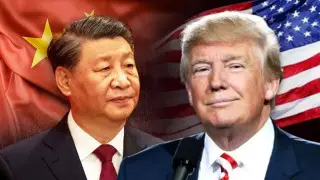
pharmaceutical industry
International News: US President Donald Trump has once again attacked the pharmaceutical companies. He has issued a historical order asking companies to cut the prices of press conference drugs from 59% to 90% in 30 days. This order will provide relief to American consumers, but it can also affect drug policies and prices of developing countries like India.
Trump has also announced the implementation of the "Most Favored Nation Pricing" rule, under which if a drug is not cheap in the scheduled time in the US, its price will be fixed equal to the lowest price in other countries in the world. Its purpose is to curb the high prices of drugs in the US, but it can start a new upheaval in the global pharma market.
According to Ajay Srivastava, founder of Global Trade Research Initiative (GTRI), due to this new rule, international pharma companies can put pressure on to increase the price of drugs in low -cost markets like India. This is so that the basis of the minimum global price of the drug in the US increases and companies do not need to reduce the price in the US market.
He warned that now drug prices can be fixed in a new structure globally, which will increase the pressure on India to tighten the patent rules. Companies in trade talks may demand implementation of data exclusive and patent expansion such as "Trips Plus" rules.
According to Saurabh Agarwal, tax expert at EY (Ernst & Young), this order will benefit the American consumer, but will increase the pressure on pharmaceutical companies. To compensate for the loss of revenue in the American market and R&D (research and development) costs, companies can increase the prices of medicines in low-cost countries, such as India.
Sudarshan Jain, general secretary of the Indian Pharmaceutical Alliance (IPA), says that this order will not directly affect Indian companies making generic medicines. Generic companies in India already work on very low profits. 90% of prescription medicines in the US are generic, but their value share is only 13%.
Still, Jain admitted that pressure will increase on innovator companies, which develop new medicines. This pressure can also be put on the Indian government to strengthen patent protection.
India is the world's largest generic drug producer and its share in global supply is about 20%. Generic medicines are exported to more than 200 countries from India. More than 60,000 brands and 60 theraputic categories are produced.
Srivastava of GTRI said that India's patent policy is in accordance with Trips (WTO), but has been opposing the "Trips Plus" rules. Data exclusiveness and patent linkage in India are not recognized, which makes the drug approval process simple and faster. Also, Indian law rejects practices like earrings to increase the patent duration.
It is clear from Trump's order that the politics of prices and patent rules in global pharma business will intensify. Countries like India will have to balance international pressures while maintaining their public welfare patent policy. India's role in the global supply of affordable and accessible drugs is decisive - and this role can remain only when it is maintained on the policy that prefer public health.













Copyright © 2025 Top Indian News
